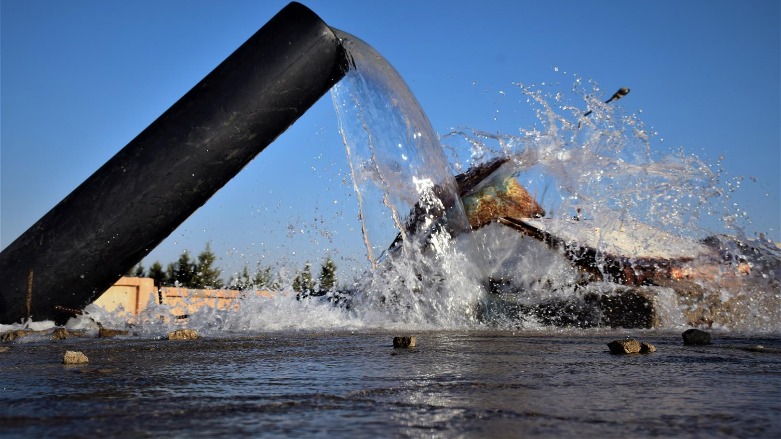Turkish dams threaten to leave 5.4 million people in north Syria with no drinking water, electricity: Report

ERBIL (Kurdistan 24) - An alliance of non-governmental organizations operating in northeast Syria warned on Wednesday that critically low water levels in the area caused by dams upstream in Turkey could soon shut down a crucial north Syrian dam, depriving millions of civilians of both potable water and electricity.
“A reduction in water levels and electricity supply would make the process of water provision and purification impossible, leaving 5.4 million people with no alternative sources of drinking water,” read the report provided to Kurdistan 24 by the alliance known as the NES Forum.
“Emergency water provision by humanitarian actors, such as water trucking,” it continued, “are also reliant on water supply from the Euphrates – there is also too little capacity for humanitarian actors to cover this size of population.”
Local officials and expert engineers operating the Tishreen dam have also warned that critically low water levels of the Euphrates river are only 20 to 30 days away from causing the complete closure of the facility, as dams cannot operate at such low levels for a variety of reasons including increased temperature and salinity.
“In addition,” the report read, “lack of water in Tishreen dam (near Manbij) has caused the emergency use of water reserves in Tabqa dam (in Raqqa province), and the depletion of this resource.”
“If both dams cease to function, the humanitarian consequences will be severe,” the groups warned.
The two dams serve as the main source of electricity for approximately three million people in northeastern Syria and the Euphrates River provides drinking water for approximately 5.4 million.
According to local authorities, sufficient water to maintain functionality of Tishreen dam has not been released from Turkey’s dams this year, leading to critically low levels of water in the Euphrates and the dam in normal flooding months which should have begun in late January.
“As water levels are usually at their highest during flooding season, senior officials expressed concerns about even more critical shortages of water in typically drier months, between June and December,” the report said.
Moreover, the report said this could lead to losses of livelihood for farmers in the provinces of Raqqa, Deir al-Zor, and parts of Aleppo.
It would also exacerbate challenges for the healthcare system and COVID-19 prevention in northeast Syria.
Last month, Mark Lowcock, the United Nations Under-Secretary-General for Humanitarian Affairs, warned UN member states that there needs to be a sustainable solution to keep water flowing to northeastern Syria after the supply was cut, yet again, by Turkish-backed armed groups between the Alouk water station and Hasakah province.
Read More: UN relief head says water cut again to half a million people in northeast Syria
“Everyone knows in such a period there is a need for clean water and sanitation to avoid more COVID-19 cases,” Luqman Ahmi, the spokesperson for the Autonomous Administration of North and East Syria, previously told Kurdistan24 in an interview. “This can be considered a war that the Turkish state wages against the administration.”
Therefore, the alliance of NGOs concluded that “high-level diplomatic efforts are required immediately to ensure that sufficient water quantities (minimum 500m3 per second) are released from dams in Turkey within the next two weeks to supply the water needs of Northeast Syria.”
“Authorities communicated that if water is released, it will take two months for water levels to reach acceptable levels,” the report warned, concluding that “immediate action will allow the dams to stabilise and slowly regain capacity over time.”
Editing by John J. Catherine